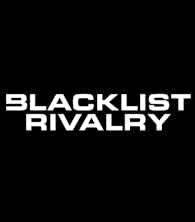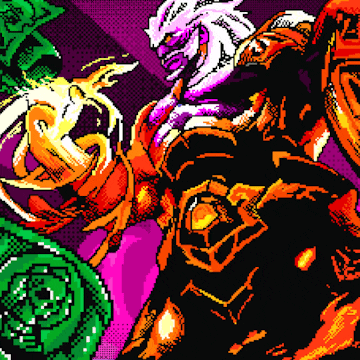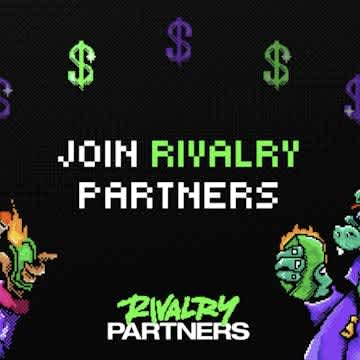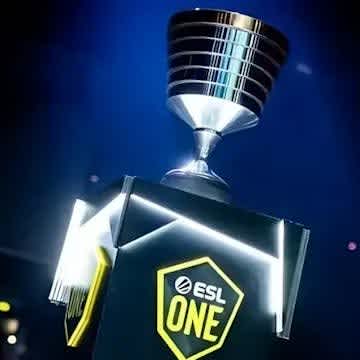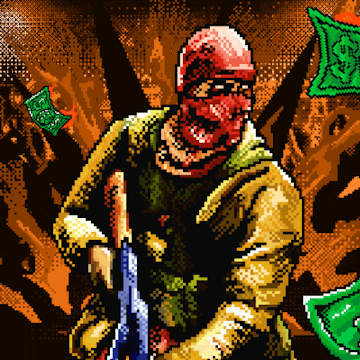Behind The Rivalry: An Interview with Nate “NaTaN” Wicks
In the middle of the Southeast Asia Qualifiers for The International 2023, we caught up with Blacklist Rivalry’s resident analyst, Nathaniel “NaTaN” Wicks to pick his brain on Dota, what it’s like being part of the org, and shed some light on what the players are like behind the screens.
Q: For those who aren’t familiar with you yet, can you introduce yourself?
Natan: Sure! My name is Nathaniel Wicks, also known as NaTaN, or Nate. I’m currently the analyst for the Blacklist Rivalry team, also being trained as the future, hopefully, manager, if everything goes well. I used to be a caster under Tier One Entertainment. Eventually, became the analyst for the team.
Q: How did you first get into Dota?
Natan: Typically in the Philippines, it’s the comshop (internet cafe) culture. But the thing is I grew up in China. So I would only come back to the Philippines during the summer, which is July and August. And I would see my cousin play. So when he wasn’t using the PC, I was using the PC. At first, it was just bots, I only played against AI. And then eventually I really got into Dota, I would say 2010 onwards, when I came back to the Philippines from being in China. So starting out, I’d still play against AI, but eventually, I got the courage to play in the Garena servers, online lobbies. And then it continued from there. It’s pretty much the Philippine culture of playing games and Dota was the big thing back then, so I played Dota.
Q: What other games did you like to play?
Natan: As a kid, because I didn’t have a PC, I played a lot of PlayStation. Stuff like Crash Bandicoot, I was into, well I still am, football, so FIFA, and Pro Evolution Soccer. It was mainly PlayStation games. It was really only here in the Philippines that I got into PC games. Since computer shops were all the rage back then.
Q: Now, are you one of those diehard Dota-only enjoyers?
Natan: Yeah, still diehard Dota. I think ever since my start in 2010. I mean, I played other games, but it’s really hard to leave Dota. I feel like I’ve dedicated, what, 13 years of my life, to this game. Ever since fourth year high school, until now, I still play Dota.
Q: And now you’ve made a career out of it!
Natan: Mhm.
Q: How did you get your start in Blacklist Rivalry? Were you scouted? Who approached you?
Natan: It was Tryke who messaged me directly. Since I was part of Tier One as a caster/analyst, he was interested back last year, or around TI. I’m not sure when the conversation first started but he was interested in starting a team. The team was formed, and he was thinking of forming it a little bit around the (Blacklist) MLBB team. Because the ML team had a coach, and an analyst. So he was looking for an analyst and he messaged me out of the blue. I was surprised actually, it’s not every day you get a message from Tryke. It was pretty obvious that it’s something that I’ve always been interested in trying. So I pretty much dropped everything else. So I went straight into the team because of Tryke. It happened very quickly, so I was really surprised. I pretty much had to make a decision straight away. It was quick and fun.
Q: As the team’s analyst, it’s important that you know what everyone’s doing and what the team’s schedule looks like. What’s a typical game day routine look like for you and the team?
Natan: I think I’m just gonna focus more on the analyst part. As an analyst, you pretty much just wait for the team to get ready. Being an analyst in Dota 2, I guess you could say is more like a luxury. Not every team has an analyst. Since it’s not something every team has, there’s no standard as to what an analyst is. But if I could relate it to an existing job in, let’s say, corporate. I would be a data analyst. Since we have scrims, basically I just note down everything. I take care of all the data. That’s a typical day. I wake up, do the data for the team, watch the scrims with them, watch out for things we can talk about with the coach, and then that ends the day pretty much. But when it comes to tournament days, it’s pretty much the same. Simply put, if the coach looks out for the team’s stuff, I look out for the opponent’s stuff. So I’m like a scout in that sense. I scout opponents’ picks, bans, data to help the team or the coach. Usually it’s in-game stuff. So before tournaments, I’ll have a scout report. Trends that the opponents may have. Like maybe they like to gank mid or where their wards are at. Stuff like that. Anything about the opponents that could help the team. Outside of that, I like to think of myself as a brother to the team. If ever they need help, even just play a game of billiards or go out on a jog, it’s not part of the job but I like to try to make them feel happy, try to keep the atmosphere positive as much as possible.
Q: Most of the fans only see the games or content that the orgs put out. What’s one thing that happens inside an esports team/org that most people don’t know about?
Natan: Honestly it’s something that many people don’t see at a glance. It’s quite a typical answer. And it’s that the players are humans. They feel the same feelings as you do. They experience the same things you do. Happiness, excitement, nervousness. A lot of people can forget that sometimes these people can be kids. This is something that people don’t really see. They have feelings. This isn’t about the hate comments or whatever. It’s something that I experienced as well. Because for the longest time I was also a fan, I was also a viewer. Technically, being a caster is being a fan that has the privilege to speak and for others to hear you. But at the end of the day you’re still a fan. This is my first time working with a professional team so the transition was pretty quick, it’s something that I really saw. Of course we weren’t gonna be instantly friends at first, I had to earn their respect. Like some new guy comes in who you never really heard of, so you have to prove yourself. So that’s something I can also share. You have to prove yourself to them and earn their respect. Because if you say something, they’re not gonna listen to you straight away. But over time, I befriended them, at least I’d like to believe that we’re friends. Haha. We all live in the same house so we all became close. While I’ve known them and lived with them for seven months, in a way we almost feel like brothers at this point. I really learned that these guys are humans. Before, since I was a fan, I thought to myself, oh these guys are gods, they’re untouchable. But I found out these guys are just like me. They’re humans at the end of the day.
Q: What’s your most memorable experience being part of Blacklist Rivalry?
Natan: There’s really two moments that have been most memorable so far. I’m sure there will be more, because we’re approaching the end of the season and at the time of this interview we’re in the middle of the regional qualifiers. But so far, the first one was during Tour 3, when we won against Bleed Esports. It was really after that series that I felt that, oh my god we’re gonna make it to the major. Because if you go back to Tour 1, I think the expectations for this team was very high. You look at each player in each of their positions, they’re like the FIlipino all stars. Obviously things have changed since then, expectations have been lowered because, okay we didn’t perform to everybody’s expectations. But after beating Bleed in Tour 3, if I’m not mistaken we lost Game 1 then we won the two games after. I think the third game, it was really intense. When we won, that winning moment, I really felt like, we’re gonna make it to the Major. And we eventually did of course. It felt really exciting to close out that series. The second one was when we were in Bali, so we were at the Major already. And the moment that really sticks with me even to this day, even if it wasn’t too long ago, was when we won against IG. It was the comeback game. The series was a must-win. If we didn’t win that series 2-0, then we would have been knocked out. But if we won we would force a tiebreaker, eventually it would be against Shopify Rebellion. It was a, what, 60, 70-minute or whatever game. But it was gg. We were gonna lose that game. But there was a really special call that Tims made, to TP to the creeps in the middle lane and all of a sudden we were, not really backdooring. Because our opponents were going into our high ground, they were about to finish the game. But there was just a creep or a bunch of creeps that made it to the opponent’s base, the team TP’d into it, and we found a way to be able to comeback, and I think that was the biggest comeback since 2015 or something in a LAN. Definitely a really special experience. The viewing area in Bali was on the first floor, detached from the actual hotel. You had to go up two or three flights of stairs to get to the actual gaming room. And I ran my ass off. So excited to cheer with the team and celebrate. Obviously the series wasn’t finished yet but eventually we won the game 2-0. Then ended up losing the tiebreaker against Shopify. But even then, say my esports career ended tomorrow, that’s definitely something I would still remember.
Q: Being part of history, definitely a memorable highlight. As you mentioned, we’re currently in the last chance qualifiers. From the whole year, the three tours and the major, how would you describe Blacklist Rivalry?
Natan: Obviously, it’s a team that had really high expectations set for them, just because of the names on the team. If I had to use one word, it would definitely be “hope.” And something I think Tryke mentioned during the presscon launch for the team, it was that this team was the redeem team. Obviously all the players here are wanting to redeem themselves, redeem the Philippines, Southeast Asia. These players are fucking talented. But they really just need that one break. To show that Southeast Asia is a region to be reckoned with, that the Philippines can produce talent in Dota 2.
